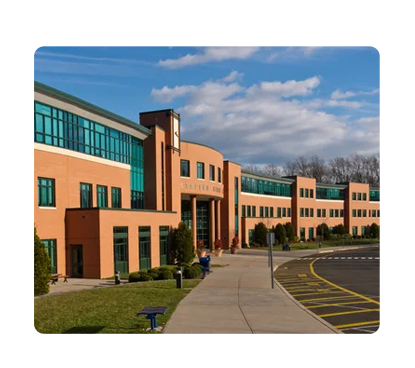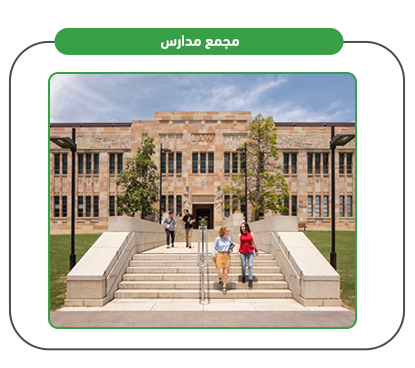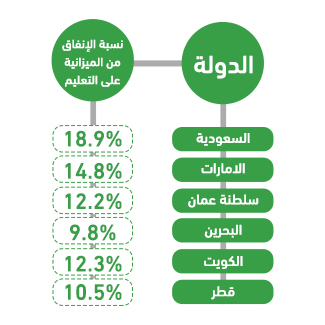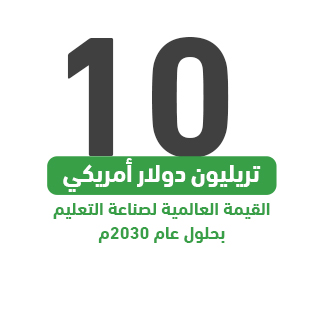The School Complex Project represents a visionary educational initiative aimed at providing a comprehensive environment that combines academic excellence with personal growth for students. The complex includes a range of modern schools designed to the highest standards and equipped with the latest technologies and advanced infrastructure to meet the needs of future generations. The project features smart classrooms, state-of-the-art scientific laboratories, and well-resourced libraries, alongside green spaces and gardens designed to enhance the educational experience and foster creativity. The complex places a strong emphasis on extracurricular activities, including sports, arts, and innovation, by offering multifunctional sports facilities and a dedicated theater for artistic performances. The project aims to develop students’ skills in academic and social aspects while enhancing their critical thinking and creativity. The School Complex Project also incorporates an advanced security system to ensure students’ safety around the clock, providing peace of mind for parents. Furthermore, the project places great importance on fostering collaboration between families and schools, organizing regular workshops and guidance programs for parents. This approach ensures the integration of education and upbringing in a safe and inclusive environment that meets the aspirations of all involved.

The School Complex Project represents an innovative model in the development of the educational system, aiming to provide a comprehensive learning environment that meets future needs. The complex focuses on offering a holistic educational experience by integrating the latest technologies into the teaching process, fostering positive interaction between teachers and students. The project includes innovative study spaces designed to stimulate creativity and enhance interactive learning, in addition to classrooms equipped with advanced digital technologies that support improving students’ understanding and comprehension.
The complex also features state-of-the-art sports facilities and spaces dedicated to artistic and creative activities, ensuring a balance between academic education and physical and artistic development. The project promotes teamwork and collaboration skills among students, which contributes to enhancing their social and leadership abilities. Furthermore, the School Complex Project provides integrated support services, including educational and psychological counseling, aimed at creating a supportive environment for students. All of these elements come together to offer a pioneering educational experience focused on building students’ personalities and developing their skills to face future challenges with confidence and distinction.

Smart classrooms equipped with modern technologies.
Advanced scientific laboratories.
Libraries rich in educational resources.
Green spaces and educational gardens.
Multi-purpose sports facilities.
A theater and halls for artistic and creative performances.
Extracurricular activities that enhance students’ mental and psychological well-being.
An advanced security system to ensure students’ safety.
Workshops and guidance programs for parents.
Educational and psychological counseling to support students.


Use of the latest educational technologies.
Advanced sports and artistic facilities.
Enhancing students’ creative and critical thinking.
Supporting extracurricular activities to develop personal skills.
A comprehensive security system to protect students.
Strengthening collaboration between families and schools.
Educational and psychological support services.
Modern designs that adhere to sustainability standards.
Executive summary
Study project services/products
Market Size Analysis
Risk Assessment
Technical study
Financial study
Organizational and administrative study

The Education Sector in the GCC Countries
Believing in the significance of the education sector and its role in national workforce localization, Mashroo3k Economic Consultancy and Market Research is pleased to present the key educational indicators in the Gulf Cooperation Council (GCC) countries—inviting investment in this vital sector:
The total number of early childhood education students (including nurseries and kindergartens) in the GCC countries reached approximately 851.5 thousand students, according to the latest available statistics.
The number of students in school education stages is estimated at 9.3 million, with 79.4% enrolled in public schools and 20.6% in private schools.
Adult education centers recorded around 181,247 learners.
The total number of higher education students is 2,206,446.
The number of early childhood education teachers is 50,647.
The number of school education teachers is approximately 727,904.
There are 5,806 operational institutions in early childhood education.
There are 32,310 operational institutions in school education.
Over recent years, GCC governments have worked to bridge the gap between education and labor market needs. They have adopted curricula aimed at increasing the share of vocational and technical education and promoted learning through digital platforms and modern technologies. Additionally, these six countries have significantly increased their spending on education to produce graduates who meet the private sector’s workforce demands.
According to the latest statistics:
Saudi Arabia allocates 18.9% of its national budget to education.
UAE spends 14.8%,
Oman allocates 12.2%,
Bahrain spends 9.8%,
Kuwait allocates 12.3%,
Qatar spends 10.5% on education.
By 2023, the private education market in GCC countries is expected to reach a value of USD 26.2 billion.
The Global Education Sector
The global education services market was valued at approximately USD 2,882.52 billion by the end of 2021. Experts projected this figure to reach USD 3,191.79 billion by the end of 2022, marking a compound annual growth rate (CAGR) of 10.7%.
Looking ahead to 2026, the market is expected to grow further to USD 4,623.90 billion, achieving a CAGR of 9.7% over the forecast period.

By the year 2030, the global value of the education industry is projected to reach USD 10 trillion.
By 2024, the value of online education worldwide is expected to hit USD 247.46 billion.
The AI-powered education market is set to grow at a compound annual growth rate (CAGR) of 36% from 2022 to 2030.
In terms of global student numbers:
In the year 2000, there were approximately 657 million students worldwide.
By 2019, this number had increased to 739 million.
For secondary education, the number of students grew from 452 million in 2000 to 601 million in 2019.